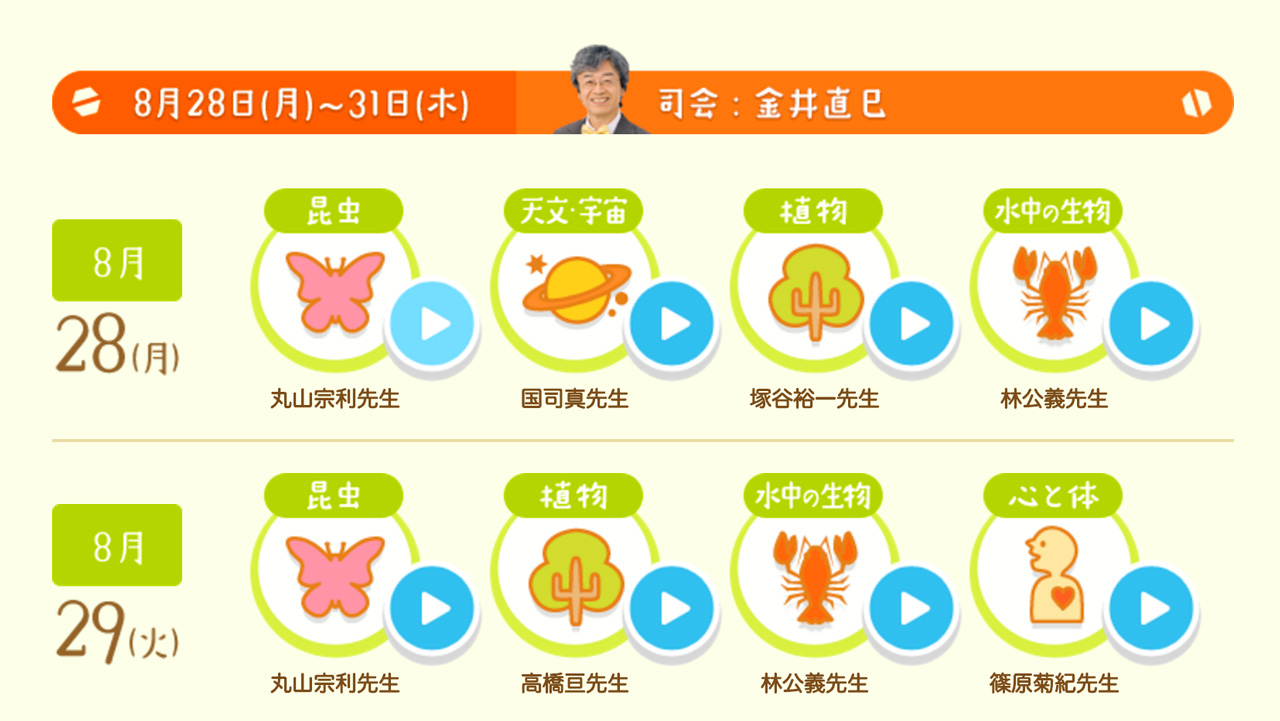
夏休み 子ども 科学 電話 相談, which can be translated literally to "Summer Kids Science Phone Discussions" is a show produced by NHK every summer where Japanese kids call professional scientists and ask their science questions. This summer's episodes have just ended and they're available online for free!
While the show itself isn't new, there were 64 new conversations recorded this year. These recordings are fantastic for late-beginner and intermediate learners for a few different reasons:
- Children are asking the questions. That means the language is simple. You're getting a professional answer presented in a way that's easier for kids and new language learners to understand.
- Topics are science-based, which means they cover things like bugs, animals, space, nature, emotions, and the human body. A lot of the vocabulary you learn early on in your Japanese studies probably falls into these categories. All those noun lists you've been memorizing can be put into practice here.
- Discussions are short, usually around five minutes. This makes them easier to grasp. And listening to short recordings a few times over is interesting instead of time-consuming or stressful.
- These are real kids asking real questions. None of the conversations are scripted, so you can hear how people really speak. It's nice to listen to carefully paced, simple Japanese when you start out, but it's important to graduate to real conversations as soon as you can. This series is a gentle door into the world of using real Japanese.
The content itself is entertaining enough, and they're all basic questions you've probably heard if you have younger siblings or kids, or spend a lot of time around children. Things like:
- どうして、水は冷たいのですか?
- Why is water cold?
- オウムや九官鳥は、どうしてしゃべることができるの? しゃべっていることを理解しているの?
- Why can parrots and mynah birds talk? Can they understand what they're saying?
- どうして、パンツははかないといけないのですか?
- Why do I have to wear underpants?
- なぜ、地球には酸素があるのに、火星や他の星には酸素がないの?
- Why does Earth have oxygen when Mars and other planets don't?
- セミの抜け殻は食べられますか?
- Can you eat cicada shells?
These recordings are fantastic for late-beginner and intermediate learners.
Younger kids, usually those around five years old, ask cute, sometimes funny questions (like the underpants one) while older kids ask more complicated questions about space, weather, and robotics. But all the questions are interesting and legitimate in their own right. If you're in Japan and someone asks, 「どうして、パンツははかないといけないのですか?」 you better have a good answer.
Unfortunately, there are no transcripts available (at the time of this writing) so you'll have to rely on your listening skills only. But that can be a major boost to your studies, because you can't cheat. You can't trick yourself into thinking you understand the audio by looking at the English answers. You have to rely on your own listening skills.
And if you're working with a Japanese professor, tutor, or have some native friends, try to ask them questions about each episode in Japanese instead of English. It's a great opportunity to start listening and speaking sooner rather than later.